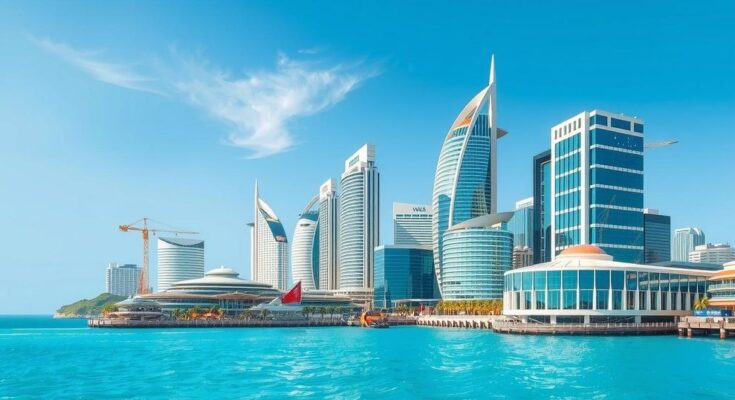Saudi Arabia is actively redefining its global role, hosting significant diplomatic summits and pursuing a reputation as a key mediator in international relations. Crown Prince Mohammed bin Salman is leading these efforts, despite ongoing criticisms regarding the kingdom’s human rights record. SA seeks to balance its identity as a crucial economic player while addressing its historical challenges.
Saudi Arabia is set to host a pivotal summit on Tuesday, featuring attendance from Secretary of State Marco Rubio and Ukrainian President Volodymyr Zelenskyy. This comes as Zelenskyy seeks to mend relations with Washington following a previous contentious encounter with President Donald Trump and Vice President JD Vance. This summit highlights Saudi Arabia’s growing reputation as a diplomatic intermediary in global conflicts.
In recent years, Saudi Arabia has emerged as an unexpected power broker on the global stage, hosting discussions aimed at ending the Ukraine war and facilitating dialogues concerning Gaza. This transformation is part of a broader initiative to reshape the kingdom’s image, contrasting its historical portrayal as a conservative entity with a poor human rights record, as critiqued by President Joe Biden in the past.
Crown Prince Mohammed bin Salman (MBS) is at the forefront of this rebranding strategy, striving to reposition Saudi Arabia as a modern state enriched by diplomacy, business ventures, tourism, and sports. Thomas Lippman, a noted scholar, remarked that Saudi Arabia is increasingly becoming a prominent player internationally, stating, “This is a new Saudi Arabia — better educated, well-traveled and more open to ideas than in the past.”
In addition to the upcoming summit, Trump has indicated that his first foreign visit of a potential second term would also be to Saudi Arabia. In exchange, the Saudis have purportedly pledged to invest $1 trillion in U.S. businesses, intensifying scrutiny on the connections between the Trump family and Riyadh. Concerns regarding potential conflicts of interest have been raised by figures such as Senator Ron Wyden.
The extensive diplomatic engagements of Saudi Arabia extend beyond its relationship with the Trump family, as the kingdom has also facilitated discussions between the United States and Russia, and convened Arab leaders to deliberate on significant proposals related to Gaza. F. Gregory Gause III highlighted the kingdom’s ambition to present itself as a venue for international negotiations, seeking alternatives to traditional diplomatic locations like Geneva or Vienna.
Saudi Arabia’s Vision 2030 initiative, spearheaded by bin Salman, aims to diversify the nation’s economy beyond oil dependence by embarking on various major infrastructure projects. Moreover, Riyadh has become a hub for Western cultural events, including concerts and sports, as illustrated by its involvement with the English Premier League and the establishment of the LIV golf tour.
Despite improvements and reforms, including adjustments to women’s rights and increased international engagement, reports continue to indicate significant human rights abuses in the kingdom. The U.S. State Department has categorized these issues as including arbitrary killings, repression of dissent, and torture. Rayan Alyusufi, a Saudi doctoral student, noted the observable reforms, yet acknowledged that substantial issues remain.
The perception of Saudi Arabia among diplomats and international business leaders seems to reflect a complex reality, wherein it is recognized as a significant global player despite its authoritarian practices. Jon Alterman observed that interactions with Saudi Arabia have evolved, akin to engagements with nations like China. He remarked that it is viewed as a government that, while harsh, is a crucial player whose influence is better engaged than ignored.
The article illustrates Saudi Arabia’s strategic efforts to redefine its global position from that of a pariah to an influential diplomatic power. Spearheaded by Crown Prince Mohammed bin Salman, the kingdom aims to enhance its international relations and economic landscape through significant reforms and ambitious initiatives. Nevertheless, challenges regarding human rights abuses remain critical as the nation continues navigating its dual identity as both a formidable global player and a state with a controversial domestic record.
Original Source: www.nbcnews.com




